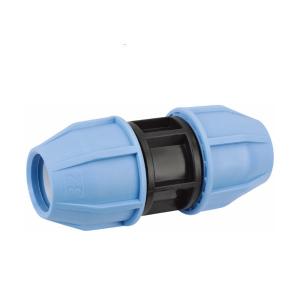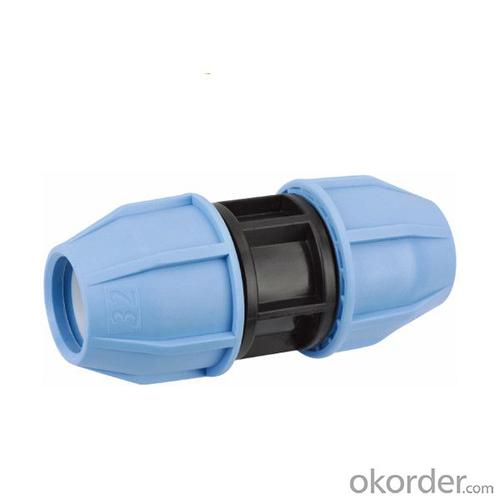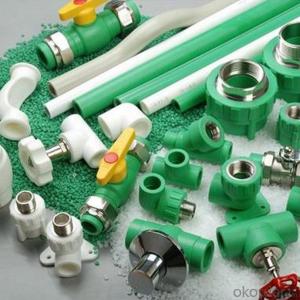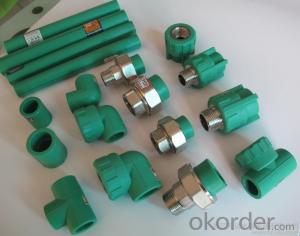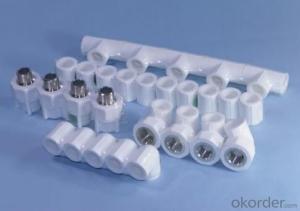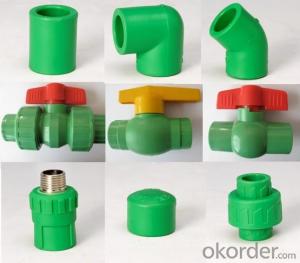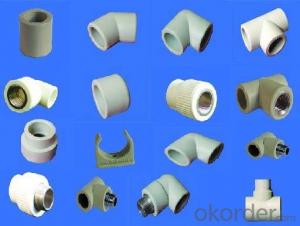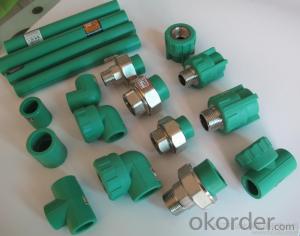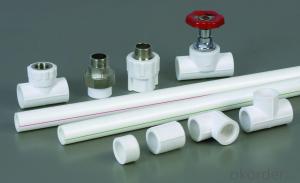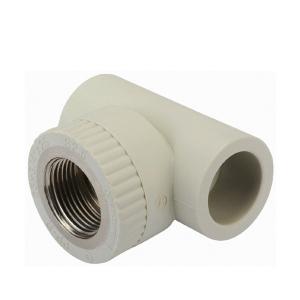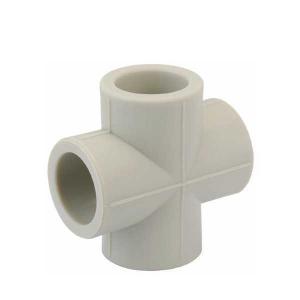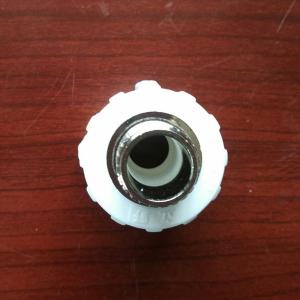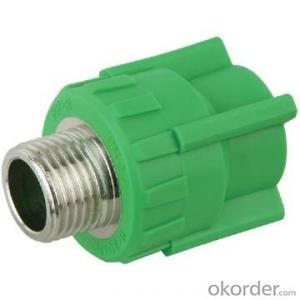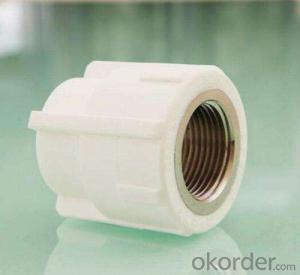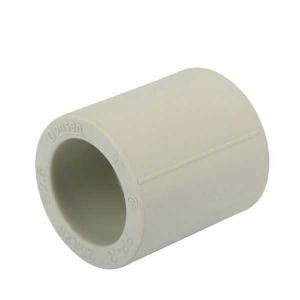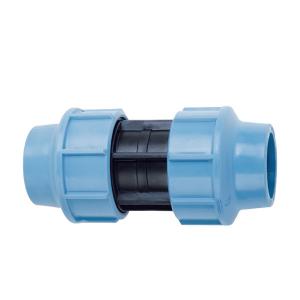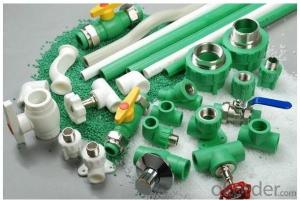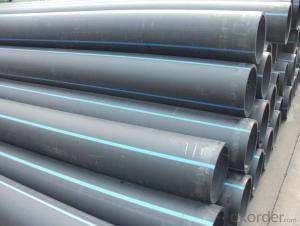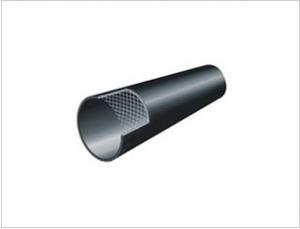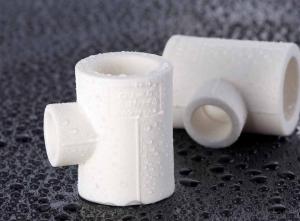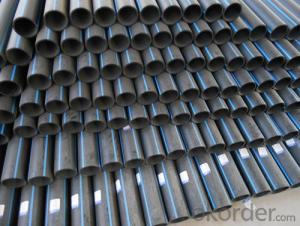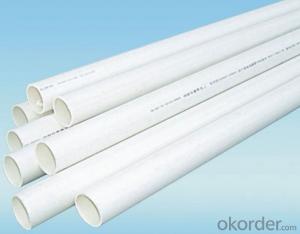High Quality Charlotte Plastic Pipe Fittings Coupling
- Loading Port:
- Ningbo
- Payment Terms:
- TT or LC
- Min Order Qty:
- 1000 watt
- Supply Capability:
- 100000 watt/month
OKorder Service Pledge
Quality Product, Order Online Tracking, Timely Delivery
OKorder Financial Service
Credit Rating, Credit Services, Credit Purchasing
You Might Also Like
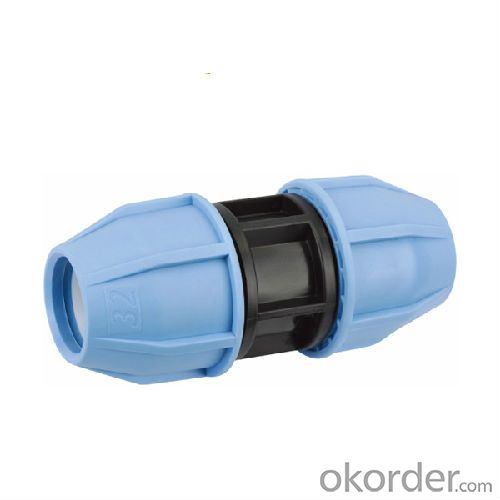 1.It is used in industrial fields, agriculture and garden irrigation 2. Beauty appearance.3.Thermal insulation and energy saving.4. Easy installation 5.excellent heat resistance and pressure resistance 6. affordable price
1.It is used in industrial fields, agriculture and garden irrigation 2. Beauty appearance.3.Thermal insulation and energy saving.4. Easy installation 5.excellent heat resistance and pressure resistance 6. affordable price
1.Material:Random Polypropylene(Hyosung R200P);
2.ISO9001&ISO14001;
3.Standard:GB/T 18742.3-2002, DIN8077/8078;
4.OEM also ok
- Q: Can plastic pipe fittings be used for potable water systems?
- Yes, plastic pipe fittings can be used for potable water systems. However, it is important to ensure that the fittings are specifically designed and approved for use with potable water. This includes checking for certification and compliance with relevant industry standards to ensure the safety and quality of the water supply.
- Q: Can plastic pipe fittings be used for irrigation sprinkler systems?
- Yes, plastic pipe fittings can be used for irrigation sprinkler systems. Plastic fittings are commonly used in irrigation systems due to their durability, affordability, and resistance to corrosion. They are easy to install, lightweight, and provide a reliable connection between pipes and sprinkler heads.
- Q: Are plastic pipe fittings suitable for water supply lines?
- Yes, plastic pipe fittings are suitable for water supply lines. They are commonly used in residential and commercial plumbing systems due to their durability, affordability, and resistance to corrosion. Plastic pipe fittings are also easy to install and maintain, making them a popular choice for water supply applications.
- Q: Can plastic pipe fittings be used for water desalination systems?
- Yes, plastic pipe fittings can be used for water desalination systems. Plastic fittings are commonly used in water treatment processes as they are resistant to corrosion, lightweight, and easy to install. However, it is important to ensure that the plastic material used is compatible with the chemicals and conditions present in the desalination process to prevent any degradation or leaching of harmful substances into the water.
- Q: Are plastic pipe fittings compatible with threaded connections?
- Yes, plastic pipe fittings can be compatible with threaded connections. Many plastic pipe fittings are designed with threaded ends that allow for easy installation and connection to other threaded components. However, it is important to ensure that the plastic pipe fittings and threaded connections are made from compatible materials to ensure a secure and leak-free connection.
- Q: What materials are commonly used for plastic pipe fittings?
- Commonly used materials for plastic pipe fittings include PVC (polyvinyl chloride), CPVC (chlorinated polyvinyl chloride), PEX (cross-linked polyethylene), and PP (polypropylene).
- Q: Are plastic pipe fittings suitable for pharmaceutical manufacturing?
- No, plastic pipe fittings are generally not suitable for pharmaceutical manufacturing due to the risk of contamination and chemical reactions with the drugs or chemicals involved in the process.
- Q: How do you connect plastic pipe fittings to ABS pipes?
- To connect plastic pipe fittings to ABS pipes, you can use ABS cement or solvent cement specifically designed for ABS pipes. Apply the cement to the outside of the ABS pipe and the inside of the plastic fitting, then quickly join the two pieces together and hold them firmly for a few seconds to ensure a strong bond.
- Q: Are plastic pipe fittings suitable for food processing industries?
- Yes, plastic pipe fittings are suitable for food processing industries. They are resistant to corrosion, easy to clean, and provide a hygienic solution for transporting food materials. Additionally, plastic pipe fittings are lightweight, cost-effective, and offer flexibility in installation.
- Q: How do plastic pipe fittings compare to HDPE fittings?
- Plastic pipe fittings and HDPE fittings are both commonly used in various applications. However, HDPE fittings are generally considered to be superior due to their higher strength, durability, and resistance to chemical corrosion. HDPE fittings also have a longer lifespan and are more cost-effective in the long run.
Send your message to us
High Quality Charlotte Plastic Pipe Fittings Coupling
- Loading Port:
- Ningbo
- Payment Terms:
- TT or LC
- Min Order Qty:
- 1000 watt
- Supply Capability:
- 100000 watt/month
OKorder Service Pledge
Quality Product, Order Online Tracking, Timely Delivery
OKorder Financial Service
Credit Rating, Credit Services, Credit Purchasing
Similar products
Hot products
Hot Searches
Related keywords
